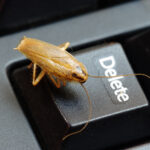Of all the creatures that could invade your home, rodents are some of the most unsettling. Mice may startle you as they skitter across your floor, and rats in your walls may keep you awake at night with their gnawing sounds. As disturbing as it is to share your home with rodents, it is also very dangerous. Rodents carry and transmit a number of diseases that are very harmful to humans, and they can quickly destroy and contaminate your belongings, including your own food source. Although there are many DIY products on the market to help you eradicate a rodent problem, it is always wise to call a Walla Walla rodent control specialist.
Mice vs. Rats
If you see a mouse or rat in your home, you will likely know which type of rodent you are dealing with because rats are much larger than mice. While mice are typically only about five to eight inches in length, including their long tail, rats can be twice that size, ranging from 13 to 18 inches in length, including their fairly short tail.
However, many people find the droppings of these creatures without ever actually seeing one in their home. So, how can you tell what rodent you are dealing with? Identifying the creature is important, as it will help you understand how to properly eliminate them. If you find droppings but have not seen an animal, you can determine what you are dealing with by looking at the size and shape of the feces. Mice have droppings that are pointed and look like grains of black rice. Rats, on the other hand, have droppings that are blunt and small, usually the size of a raisin.











